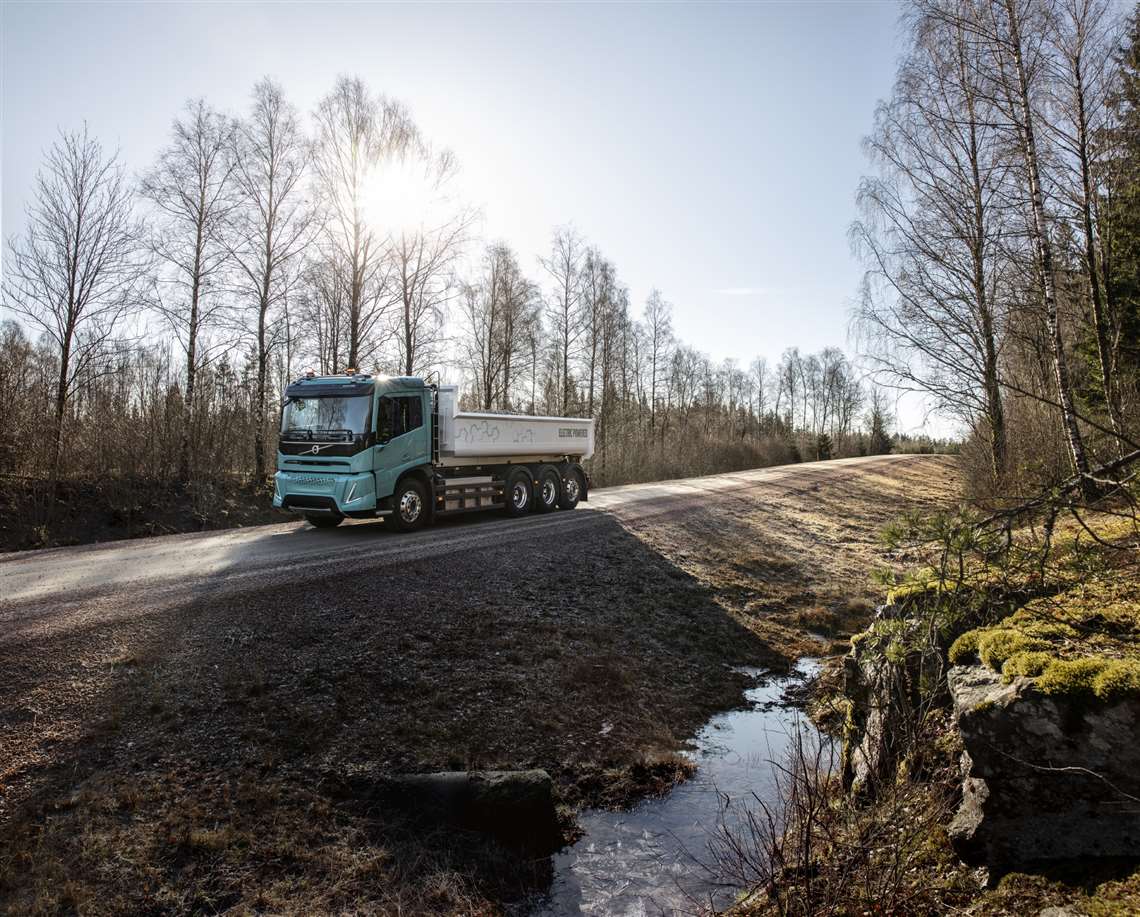Volvo Considering Heavier E-Trucks
10 December 2019

After initial forays into electric trucks for urban transport, Volvo Trucks said it has presented heavy-duty electric concept trucks for construction operations and regional transport applications. The majority of goods distribution by truck within the EU is regional.
Volvo Trucks said its plans for electric heavy-duty trucks for construction and regional distribution is to start by having selected customers in Europe pilot a small number of future electric vehicles. More extensive commercialization will follow at a later point.
In parallel with increased electrification of the transport sector, ongoing improvement of the efficiency of combustion engines will continue to play a key role for long haul truck transport for many years to come.
“Today’s truck engines are efficient energy converters that can run on diesel or various renewable fuels such as liquefied biogas or HVO, and the technology still has potential for further development,” said Lars Mårtensson, director environment and innovation, Volvo Trucks.
“We see great potential for heavy-duty electric trucks for regional transport and construction in the longer term. With our concept trucks, we aim to explore and demonstrate different solutions for the future while evaluating the level of interest in the market and in society. To increase demand for electrified trucks, the charging infrastructure needs to be rapidly expanded, while stronger financial incentives must be created for haulers who act as pioneers by choosing new vehicles with a lower environmental and climate footprint,” said Roger Alm, president Volvo Trucks.
“In Europe there is an enormous number of trucks used for regional goods transport that have an average annual mileage of 80,000 km. This means that increased use of electric vehicles for regional distribution would result in significant climate gains, provided the electricity is fossil-free,” said Mårtensson.
“The speed of electrification will depend on a number of factors. On the one hand, an extensive expansion of the charging infrastructure is needed, and on the other hand it’s necessary to ensure that regional power networks can deliver sufficient transfer capacity in the long term. Financial incentives are necessary to induce more haulers to invest in electric vehicles. Transport buyers can also contribute by offering longer contracts and being more willing to pay for sustainable transports. Many haulage operators have very small margins, so every new investment must be profitable,” said Mårtensson.
Current Volvo trucks with alternative fuels/drivelines include:
- Volvo FL Electric and Volvo FE Electric. Both these trucks are all-electric and intended, for instance, for local distribution and refuse handling in urban environments.
- Volvo FH LNG and Volvo FM LNG. The Volvo FH for heavy duty long-haul operations and the Volvo FM for heavy duty regional transport run on liquefied natural gas or biogas.
- Volvo FE CNG. Volvo FE for compressed natural gas or biogas is intended for local distribution and refuse handling.
STAY CONNECTED




Receive the information you need when you need it through our world-leading magazines, newsletters and daily briefings.
POWER SOURCING GUIDE
The trusted reference and buyer’s guide for 83 years
The original “desktop search engine,” guiding nearly 10,000 users in more than 90 countries it is the primary reference for specifications and details on all the components that go into engine systems.
Visit Now
CONNECT WITH THE TEAM









